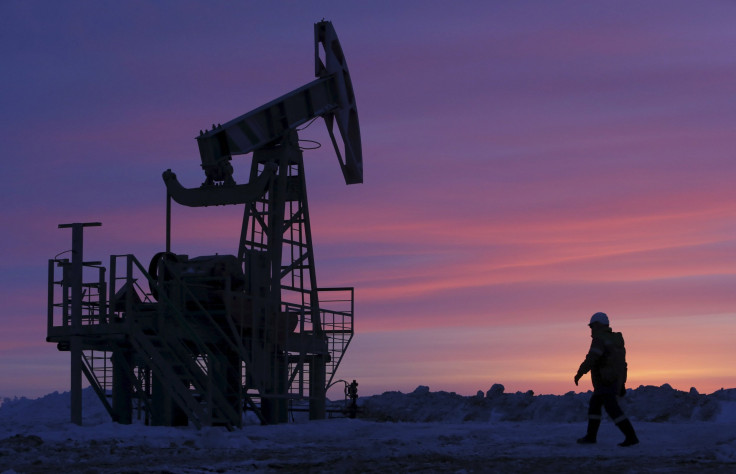Vladimir Putin To Meet Russian Oil Chiefs Tuesday As Low Prices Batter Economy

Russian President Vladimir Putin will meet the heads of top Russian oil companies on Tuesday to discuss the impact of low oil prices on revenues, Vedomosti business daily reported Sunday, citing an anonymous source. However, a specific agenda for the meeting — which comes just days after Russia, along with Saudi Arabia, Qatar and Venezuela, agreed to freeze oil output at January levels if other producers follow suit — has not been finalized, Vedomosti reported.
“[Putin] will probably discuss the situation of the world oil market, [and] how the companies can adapt to the low prices,” the source told Vedomosti, adding that taxation is another topic that is likely to be discussed.
The energy export-reliant Russian economy has been hit hard by the global slump in oil prices. The country’s economy contracted by 3.7 percent in 2015, after expanding 0.6 percent in 2014, according to figures released last month by the official statistics service Rosstat. It marks Russia’s worst economic performance since 2009 — when the world economy was suffering from the effects of the financial crisis.
Oil and gas generate about half of the Russian government’s revenue. Given the current price of the global oil benchmark Brent crude — which has fallen by nearly 70 percent since mid-June in 2014 to trade at just over $36 a barrel — the likelihood of a second consecutive year of recession remains extremely high.
“Maybe the president wants to hear what the industry has to say, and not to take any counterproductive measures,” Maxim Moshkov, an analyst at UBS, told Vedomosti. “The President and the oil companies have to come to some kind of agreement and decide what to do.”
Earlier, on Monday, in a move aimed at offsetting the impact of the low oil prices on the economy and curbing the government’s ballooning deficit, Putin approved plans to raise domestic tax rates on gas and diesel by nearly 25 percent. The levy is expected to raise 89.3 billion rubles ($1.1 billion) this year, according to media reports.
© Copyright IBTimes 2024. All rights reserved.






















